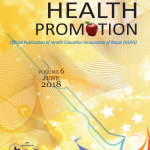Ten Bournemouth University academics attended the ESRC Research Methods Festival held at the University of Bath, 3-5 July 2018. The 8th biennial meeting attracted around 800 social science researchers at various stages of their careers, from across the range of disciplines and sectors. The festival content spanned seven parallel sessions for the morning, mid-day and afternoon workshops. This brief account is an attendee’s experience of ‘employing learning’ in Research Methods during the festival.
Day 1
The session ‘Meeting the challenges in teaching Research Methods’ (Professor Nind, NCRM, University of Southampton) was an interactive workshop informed by current pedagogical research. In teams we discussed our experiences of the three challenges in Research Methods education, namely: 1. diversity, 2. developing learning and teaching resources, and 3. online teaching.
This was followed by ‘Recent advances in rural health survey methodology’ (Dr Haenssgen, University of Oxford), which allowed me to appreciate current use of accelerometry (e.g. Fitbit) in assessing energy expenditure in communities for my current research study.
The day concluded with a rapid (downhill) run to Bath town centre, a laborious (uphill) run back, and then a nervous gala dinner served with the England vs. Columbia World Cup nail-biter.
Day 2
‘Blog like you mean it’ included tips on research communication and impact. The key-points being: make it topical (e.g. informed by current debates, issues or conversations), guide with sub-headings and look out for new policies for ‘research relevance’ (good examples include the Conversation, LSE Impact and Dementia day-to-day blogs).
Bournemouth University’s own Dr Tula Brannelly had strong attendance for her workshop: ‘Ethics of care in the research process’, which focussed on building solidarity with end-users in research, and how we can plan/create change in our own research.
Regardless of whether you are writing a research proposal, journal paper, teaching handbook or thesis, the session ‘Writing creatively for academia’ made me think of the reader: 1. maintain their interest, 2. engage their emotions, 3. activate memories and, 4. scientifically, keep it evidence-based. These aren’t exclusively applicable to all formats, but can help improve our general written communication and help eradicate bias from our writing. Elsewhere, ‘Innovations in teaching statistics and quantitative methods’ was useful for my own Research Methods teaching in the Department of Sport and Physical Activity.
Wednesday evening was more relaxed than the previous, with a guided walk through Bath town centre. Not only did we learn about Bath as a gambling den, yellow front doors, John Wood the elder, but also ex-resident, Nicolas Cage.
Day 3
The final morning involved: ‘Advances in sociogenomics’ (for general interest) and ‘New developments in qualitative evaluation research’ for healthcare research incorporating quantitative and qualitative data evidence. Both were inspiring and relevant, and importantly, led by postgraduates, to practitioners, to professors. Not all conferences/meetings are so inclusive and accessible.
Finally, I would like to thank Emily Cieciura and RKEO staff for supporting the strong attendance of BU academics at the Research Methods Festival. Similarly to myself, of those BU colleagues that I met, they felt equally as enthused and intellectually-overwhelmed…alas, in an academic, inspired way.
Many thanks,
Dr James Gavin – Academic, exercise physiology
Accompanied by…Aaron Yankholmes, Miguel Moital, Jae Yeon Choe, Michael O’Reagan (FM), Agata Wezyk (SciTech), and presenter Tula Brannelly (FHSS).
ESRC Research Methods Festival 2018

 Writing About Methods- 3rd October 2018
Writing About Methods- 3rd October 2018 Funding opportunity : ESRC National Centre for Research Methods
Funding opportunity : ESRC National Centre for Research Methods Research methods paper published by CMMPH student Preeti Mahato
Research methods paper published by CMMPH student Preeti Mahato










 SPROUT: From Sustainable Research to Sustainable Research Lives
SPROUT: From Sustainable Research to Sustainable Research Lives BRIAN upgrade and new look
BRIAN upgrade and new look Seeing the fruits of your labour in Bangladesh
Seeing the fruits of your labour in Bangladesh Exploring Embodied Research: Body Map Storytelling Workshop & Research Seminar
Exploring Embodied Research: Body Map Storytelling Workshop & Research Seminar Marking a Milestone: The Swash Channel Wreck Book Launch
Marking a Milestone: The Swash Channel Wreck Book Launch ECR Funding Open Call: Research Culture & Community Grant – Application Deadline Friday 12 December
ECR Funding Open Call: Research Culture & Community Grant – Application Deadline Friday 12 December MSCA Postdoctoral Fellowships 2025 Call
MSCA Postdoctoral Fellowships 2025 Call ERC Advanced Grant 2025 Webinar
ERC Advanced Grant 2025 Webinar Update on UKRO services
Update on UKRO services European research project exploring use of ‘virtual twins’ to better manage metabolic associated fatty liver disease
European research project exploring use of ‘virtual twins’ to better manage metabolic associated fatty liver disease
One Response to “Research methods in practice: Learning from the ESRC Research Methods Festival 2018”